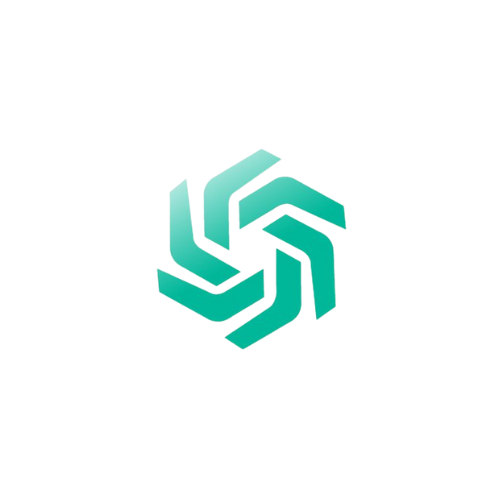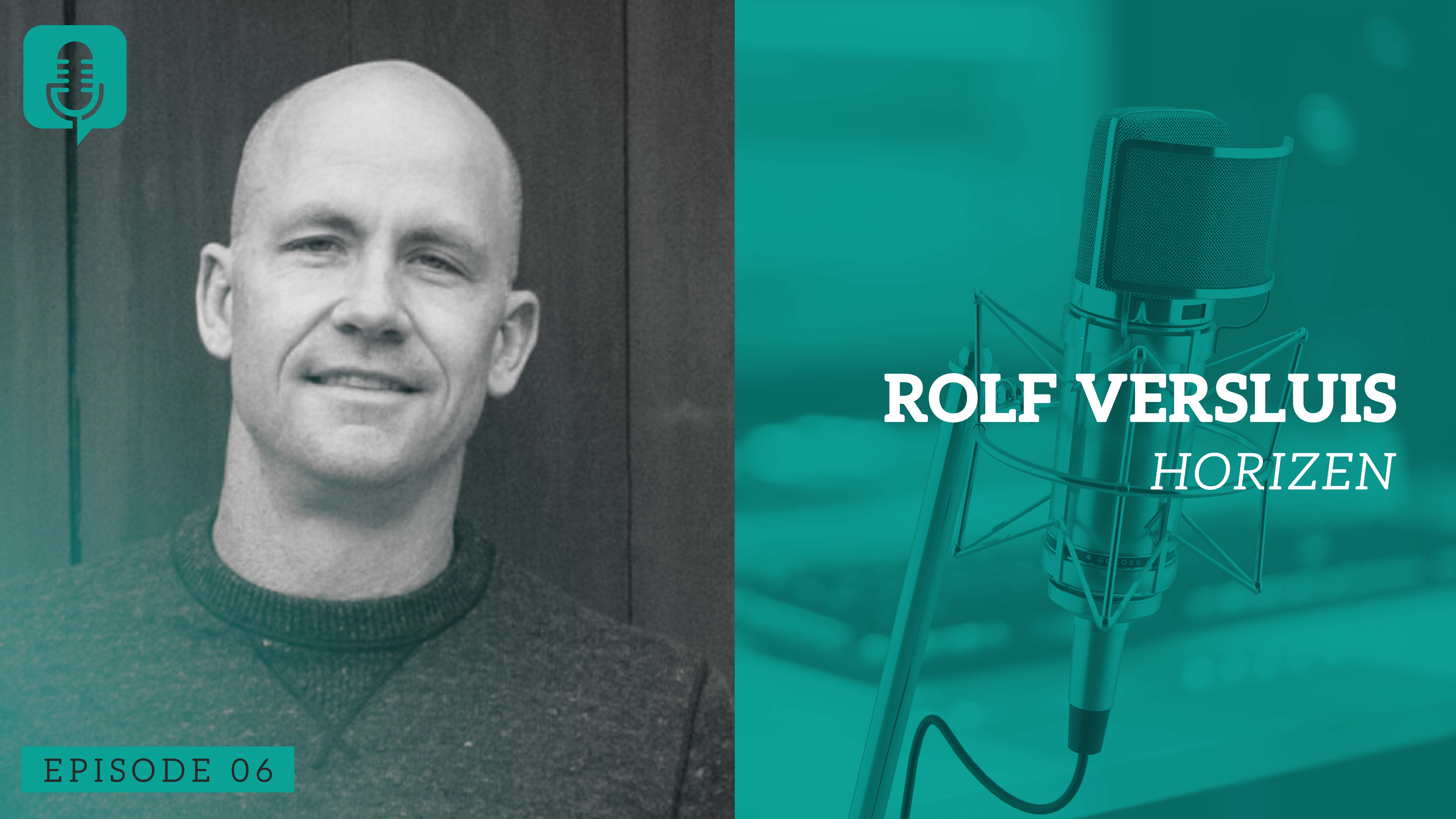In Episode 6 of the Sazmining Podcast, host Will Szamosszegi sits down with Rolf Versluis, Co-Founder of Horizen, to explore one of the most forward-thinking blockchain projects in the ecosystem today. With a deep commitment to privacy, scalability, and decentralization, Horizen represents a unique and ambitious approach to solving some of the biggest challenges in crypto.
This episode is more than just an overview of a single platform—it’s a masterclass on the evolving crypto landscape, the power of zero-knowledge cryptography, the role of ASIC mining in blockchain security, and the philosophy that underpins decentralization as a tool for freedom.
From ZenCash to Horizen: A Journey Rooted in Ideals
Horizen didn’t begin as an overnight success. In fact, its roots go back to 2016 when Rolf, a GPU miner, discovered ZClassic—a fork of ZCash. ZCash introduced groundbreaking zero-knowledge proof technology (zk-SNARKs), but Rolf and others in the community wanted a version free from corporate oversight. That’s when they began working on ZClassic and later launched ZenCash in 2017 as a chain split from ZClassic.
This launch strategy gave Horizen immediate access to an existing user base, infrastructure, and liquidity via exchanges like Bittrex. But early success came with challenges: technical bugs, replay attacks, and the urgent need for developer support. Thanks to relationships with key figures like Charles Hoskinson, Horizen was able to overcome these initial hurdles and set the stage for long-term innovation.
Why Rebranding to Horizen Was More Than Cosmetic
Originally called ZenCash, the project was often confused with ZCash—especially in the UK where the pronunciation “ZedCash” closely resembled “ZenCash.” To stand out and better reflect its broader mission, the team rebranded to Horizen. The new name signified an aspirational future and a horizon of possibilities beyond just being a privacy coin.
The rebrand also came at a critical time: the community had grown, development had accelerated, and the vision had matured beyond payments into building an ecosystem for decentralized applications.
What Horizen Is Building: Privacy + Sidechains + Freedom
Horizen is not just another fork, nor is it a simple currency. It’s a blockchain platform for building customizable sidechains that prioritize privacy, speed, and decentralization.
Here’s what makes Horizen’s architecture powerful:
- Mainchain Functionality: A secure, privacy-preserving Layer 1 chain built on a Bitcoin core with added zk-SNARK capabilities.
- Sidechain Toolkit (SDK): Enables developers to build purpose-specific sidechains connected to the mainchain but free to run their own consensus and logic.
- Decentralized Governance: The system includes node rewards, a treasury, and community voting mechanisms.
- Recursive Zero-Knowledge Proofs: These allow Horizen to securely validate transactions between the mainchain and sidechains without trusted third parties.
This architecture allows Horizen to offer the best of both worlds: the immutability and decentralization of blockchain with the scalability and modularity of traditional app development platforms.
The Sidechain Advantage: Customization Without Compromise
What sets Horizen apart from many blockchain protocols is its focus on true scalability through sidechains. While Ethereum struggles with congestion and high gas fees, and Bitcoin maintains small blocks for security, Horizen offloads complexity by allowing application-specific blockchains to operate independently yet remain cryptographically linked to the main chain.
Examples of what developers can build on Horizen sidechains include:
- Fast, low-fee payment systems for small or cross-border transactions.
- Messaging platforms with end-to-end encryption and censorship resistance.
- Supply chain tracking systems with transparent, immutable data logs.
- DAO governance structures with embedded treasury and voting mechanisms.
- Private identity systems that don’t compromise personal data.
This separation of concerns allows Horizen’s mainchain to remain stable and secure, while innovation happens rapidly on sidechains.
Zero-Knowledge Proofs: Privacy Without Sacrificing Verification
Privacy is central to Horizen’s ethos, and it’s achieved through zero-knowledge proofs (ZKPs)—specifically zk-SNARKs. These cryptographic tools enable one party to prove the validity of a statement without revealing the underlying information.
This is useful for:
- Making private transactions where senders, receivers, and amounts are hidden.
- Verifying sidechain operations without giving away internal logic or data.
- Creating compliance-friendly systems where data is revealed only when needed (e.g., audits, legal requirements).
Horizen has taken ZKPs further by developing recursive ZKPs, enabling entire sets of computations (like thousands of transactions) to be verified with a single proof. This innovation is critical for sidechain-to-mainchain communication, keeping Horizen both scalable and secure.
ASICs, Hash Power & Network Security
Rolf and Will also discuss the often controversial topic of ASIC miners and their role in securing networks.
Unlike general-purpose GPU mining, ASICs are custom-built for a specific hashing algorithm. While they’re seen by some as centralizing, Horizen embraces ASICs for their economic alignment. Someone investing in expensive Equihash ASICs is unlikely to undermine the network they rely on to be profitable.
Horizen also implemented changes to make 51% attacks far more difficult, such as delay penalties and added validation steps. Their goal is a resilient mining ecosystem that protects users and maintains decentralization.
Global Organization, Remote Culture, and Paying in Crypto
Horizen’s team is distributed across the globe—from Milan to the United States to Ukraine. This global structure is supported by tools like Discord for meetings, YouTube for developer education, and ZenCoin for compensation.
Paying contributors directly in cryptocurrency allows Horizen to:
- Bypass international wire fees and delays.
- Onboard talent regardless of nationality or location.
- Practice what they preach—using decentralized tools to build decentralized infrastructure.
This is decentralization not just in tech, but in team structure and values.
The Macro Case for Privacy Coins and Horizen’s Place in the Ecosystem
While Bitcoin and Ethereum often dominate headlines, privacy coins and modular platforms like Horizen are quietly solving some of the industry’s toughest problems. They matter more than ever in a world where:
- Governments want to tax unrealized gains or enforce total surveillance of financial activity.
- Centralized exchanges require exhaustive KYC, leaving millions globally unbanked or excluded.
- Entire populations, like those in Venezuela or Turkey, seek refuge from inflation by adopting crypto.
Horizen addresses these pain points head-on with a design that values freedom, anonymity, and control—giving people the tools to opt out of broken systems.
What’s Coming Next: Mainnet, More SDK Tools, and Developer Onboarding
According to Rolf, Horizen is on the brink of some major releases:
- The Zendoo SDK, which empowers developers to launch fully functional sidechains.
- Transition from Testnet to Mainnet for sidechain deployments.
- Expansion of video tutorials, documentation, and community support to attract more builders.
The roadmap also includes potential use cases in DeFi, governance, and supply chain. Horizen is now focusing heavily on developer adoption, and the tools are in place to allow experimentation and deployment of real-world dApps.
Horizen vs. the Competition: How It Compares
Horizen distinguishes itself from other blockchain platforms by combining true privacy, modular scalability through sidechains, and a clear focus on decentralization. Here’s how it stacks up against some of the most well-known projects in the crypto ecosystem:
Horizen offers privacy through zk-SNARKs and enables developers to build custom sidechains using its Zendoo toolkit. This approach allows Horizen to scale without compromising decentralization or clogging the mainchain. The platform supports both public and private transactions, making it versatile for a range of applications, from private payments to decentralized app development.
Ethereum, by contrast, does not offer privacy by default. While it supports smart contracts and is moving toward greater scalability through Layer 2 solutions and sharding, it lacks true sidechains in the Horizen sense. Most Ethereum-based privacy tools are add-ons or rollups rather than core features.
ZCash focuses solely on privacy through zero-knowledge proofs but doesn’t support smart contracts or application-specific sidechains. It’s mainly used for anonymous payments, not for building apps or services.
Monero uses ring signatures and stealth addresses to achieve untraceable transactions. However, it doesn’t offer the flexibility to build decentralized applications or launch custom blockchain environments. It’s a strong privacy coin but limited in scope.
Polkadot introduces parachains that serve a similar role to sidechains, but the architecture is more complex. Projects must compete for limited parachain slots, and onboarding can be resource-intensive. Unlike Horizen, which uses a treasury-funded model and offers a more straightforward SDK, Polkadot’s approach can be a barrier for smaller teams.
The Philosophy Behind It All: Organizing Around Shared Values
One of the most compelling parts of the conversation is Rolf’s reflection on how blockchain enables new forms of human organization. Beyond payments, Horizen can support:
- Virtual nations with shared governance and economic systems.
- Decentralized communities where trust comes from cryptographic guarantees, not institutions.
- Distributed businesses that transact and operate entirely outside of traditional structures.
In an era where digital connection is stronger than physical proximity, Horizen is building the rails for how we might organize, cooperate, and create in the 21st century.
Final Thoughts: Why Horizen Deserves Your Attention
Horizen is not a flash-in-the-pan altcoin. It’s a meticulously developed platform grounded in:
- Technical innovation (recursive zk-proofs, modular sidechains).
- Ethical principles (freedom, privacy, decentralization).
- Practical use cases (scalable apps, privacy-preserving payments).
- Strong leadership (experienced, credible, long-term thinkers like Rolf Versluis).
Whether you’re a developer, entrepreneur, investor, or blockchain enthusiast, Horizen represents a vision for the future that’s grounded, scalable, and aligned with the original promise of crypto: to empower individuals and disintermediate centralized power structures.
Visit horizen.io to explore their SDK, follow their YouTube tutorials, or join the community on Discord and Telegram.
Subscribe to the Sazmining Podcast
Enjoyed the episode? Don’t miss out! Subscribe to the Sazmining Podcast for more conversations with blockchain innovators and industry leaders.
Follow us on YouTube, X, and LinkedIn.
Discover all episodes at https://creators.spotify.com/pod/show/sazmining.
If you want to hear us interview a particular guest on a future episode, please reach out to us@podcastsamining.com.

